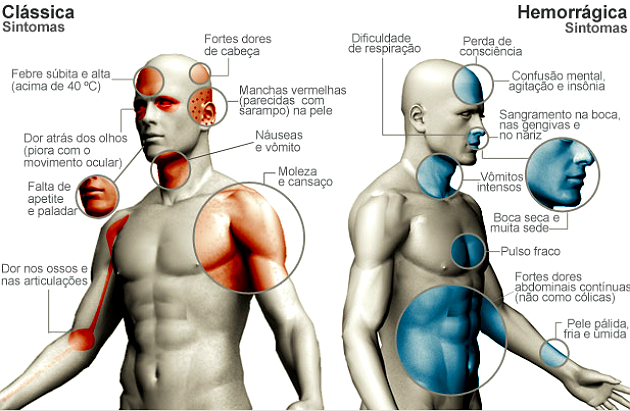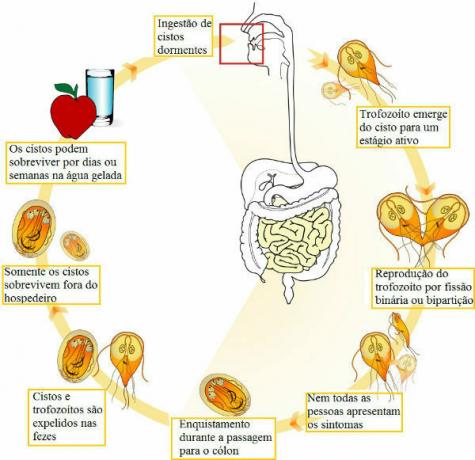Degenerative diseases are those that compromise the individual's vital functions in an irreversible and growing character. They get their name because they cause the degeneration of cells, tissues and organs.
The causes of the emergence of degenerative diseases are related to genetic aspects, environmental factors, poor diet and sedentary lifestyle. Currently, there is no cure or specific treatment for these diseases. The use of medication alleviates the symptoms of the disease and provides better living conditions for patients.
Main Degenerative Diseases of the Nervous System
Degenerative diseases that compromise the Nervous system they are also called neurodegenerative. The main ones are:
Alzheimer's disease
Alzheimer's disease or illness affects the brain and causes the death of neurons. The affected areas in the brain compromise memory, language ability and behavior.
In Brazil, it is estimated that more than 1 million people suffer from Alzheimer's disease. This disease mainly affects people over 60 years of age.
Alzheimer's disease has no cure. Treatment consists of using medication to stabilize the disease and provide relief and comfort to patients.
Symptoms
- Progressive loss of memory, it is common to remember older facts and forget everyday situations;
- Progressive loss of cognitive ability;
- Reduced capacity for social relationships.
Parkinson's disease
Parkinson's disease or illness is caused by the destruction of neurons in the area known as the substantia nigra. This region is responsible for the production of the neurotransmitter dopamine. Among the various functions of dopamine is the control of body movements.
Scientists believe that the destruction of neurons in the substantia nigra is related to aging.
The treatment of Parkinson's disease consists of the use of medication.
Symptoms
- muscle stiffness;
- Speech disorder;
- Dizziness;
- Sleep changes;
- Tremors in the upper limbs.
Multiple sclerosis
Multiple sclerosis is an autoimmune disease in which the body's defense cells attack neurons and destroy their myelin sheath. This condition causes brain damage that leads to atrophy or loss of brain mass. Thus, the functions of the central nervous system are compromised.
Multiple sclerosis affects the brain, optic nerves and spinal cord.
In Brazil, it is believed that 35 thousand people are affected by multiple sclerosis. The disease mainly affects women between 20 and 40 years old.
Multiple sclerosis cannot be cured. Treatment is based on medicines and physiotherapy. In some cases, bone marrow transplantation can be performed.
Symptoms
Multiple sclerosis has a variety of symptoms, depending on the area of the brain and nerves involved. In general, some symptoms can be related to the disease:
- Changes in sensitivity;
- Dizziness;
- Tiredness and muscle weakness;
- Vision and hearing loss;
- Lack of coordination in movements.
Amyotrophic Lateral Sclerosis (ALS)
Amyotrophic Lateral Sclerosis (ALS) is a rare disease that can be acquired or inherited.
ALS causes the wear and death of motor neurons in the brain and spinal cord, responsible for voluntary and involuntary movements. In advanced stages of the disease, even involuntary breath movement is impaired. There is no impairment of psychic ability.
ALS has no cure. Treatment consists of the use of medication and physiotherapy.
Symptoms
- Progressive weakness;
- Muscle atrophy;
- loss of balance;
- muscle cramps;
- Weight loss;
- Stuttering and voice changes;
- Involuntary muscle contractions.
Main Degenerative Muscle Diseases
Muscular dystrophy
Muscular dystrophy characterizes a group of more than 30 diseases that cause progressive muscle degeneration. There is no cure for any form of muscular dystrophy.
The main examples of muscular dystrophy are:
Duchenne Muscular Dystrophy
Duchenne muscular dystrophy is the most common form of muscular dystrophy. It is an inherited disease, linked to the X chromosome, or caused by mutations. It is characterized by the absence of a protein needed by muscles.
Duchenne muscular dystrophy causes skeletal muscle degeneration, causing generalized muscle weakness. Symptoms appear during childhood.
The main symptoms are:
- Difficulties in getting up, running or jumping;
- Constant falls;
- Muscle weakness.
Becker's Muscular Dystrophy
Becker muscular dystrophy is less common than Duchenne muscular dystrophy. However, the symptoms between the two diseases are very similar.
Becker muscular dystrophy is characterized by muscle wasting and weakness.
Learn more about Muscle System.
Other Examples of Degenerative Diseases
Degenerative diseases are also considered:
- Cancer
- Diabetes
- Hypertension


